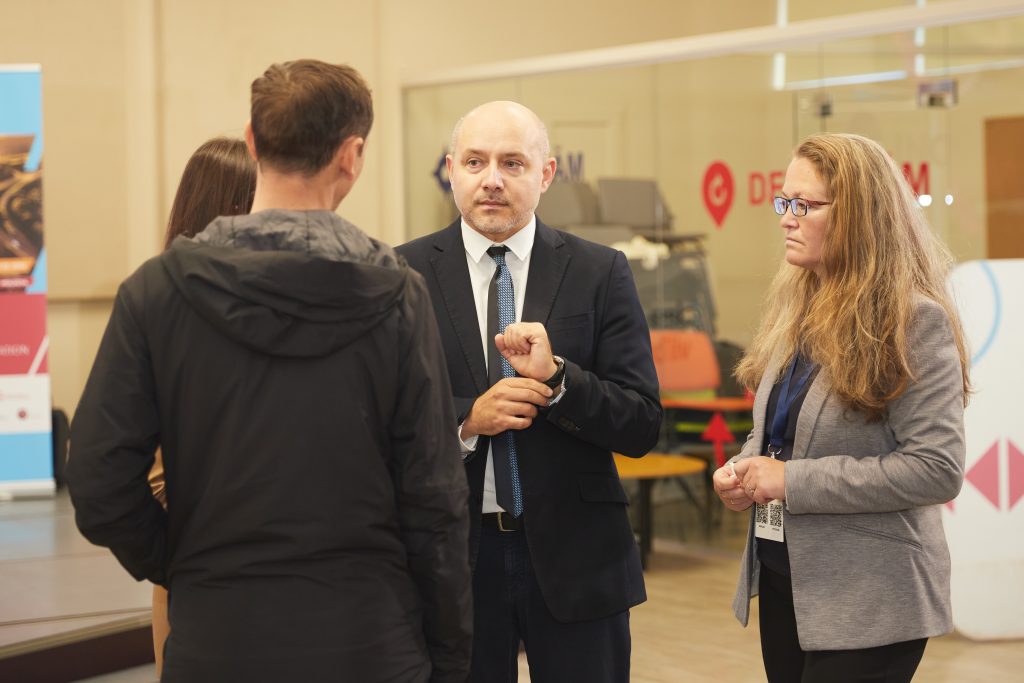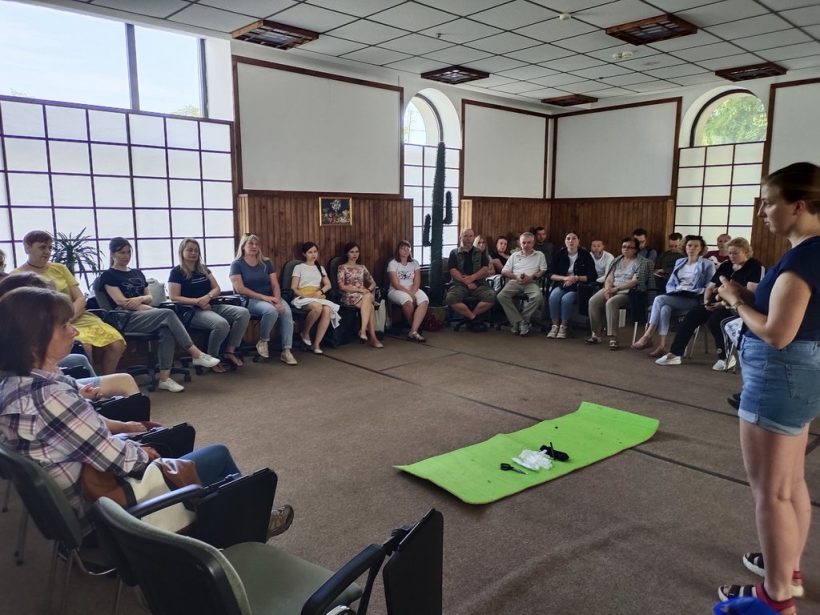Peer-to-Peer Civic Education
Educational mini-festival “Peer-to-Peer Civic Education” took place on October 08-09, 2022, in Sumy (Ukraine) as EENCE national satellite in the framework of EENCE Forum “Rethinking Citizenship Education”. The event was at the Center for Adult Education “Education for Life”.
Civic education is important for the development of any territorial community. NGO “Lifelong Learning Centre” operates in Sumy in the northeast of Ukraine. There are people in the city who want to learn and those who can teach as for any other type of education. The task of this national satellite was to find public activists in Sumy (members of public organizations, founders of public initiatives, volunteers, opinion leaders, etc.) who could share their experience for the local community development and organize educational events with them, where students can acquire relevant competencies of civic education.
The head of the organization, Yuriy Petrushenko, spoke about this festival:

“We called this approach “peer-to-peer” (p2p) in civic education: when some city residents who are successfully engaged in public activities share their experiences with other residents of the same city. The aim of the civic education mini-festival “Peer-to-Peer Civic Education” was to test this approach, when citizens with successful experience of civic initiatives teach their neighbors.
In preparing for the implementation of the national satellite, we planned to interview the citizens regarding the lack of civic competencies, as well as to find civic activists who would have successful experience in the implementation of civic projects and would like to share it. We successfully implemented this plan, but it is evident that the war that the Russian Federation started in Ukraine on February 24, 2022, made significant adjustments to the thematic content of educational events. It led to people wanting to learn what was relevant during the war (lifelong education, education for victory). Other educational topics have become much less relevant.
As a result, on October 8-9, 2022, in the Sumy Adult Education Center, we held an educational mini-festival, “Civic education “peer-to-peer”, in which 150 citizens participated. Nine educational events (workshops, master classes, lectures) were held on the following topics: “First aid”, “Safety measures during artillery fire”, “Safety measures during a nuclear attack”, “Board games in a bomb shelter”, ” Media Literacy in Wartime”, “Financial Literacy: International Transfers”, “Basics of Critical Thinking in Wartime”, “Crisis Communications”, “Psychological First Aid”.

The events took place offline because, in case of an air raid, the Sumy Adult Education Center has an equipped bomb shelter, where educational events can continue in case of rocket fire danger.
The festival received positive feedback from participants. Our experience of using a peer-to-peer approach in planning educational events allows us to recommend it to other organizations engaged in civic education in their communities. When participants of educational events know and respect those who tell them about their skills and achievements, it increases the credibility of such scholarly events. In addition, this approach eliminates the shortage of civic education trainers. We plan to develop and use this approach in the future.
As for civic education in Ukraine, we corresponded to the general trend regarding the relevance of civic education for the citizens’ safety in wartime. The military-patriotic component of civic education also begins to play a leading role in the structure of civic education. It is a challenge for the transformation of the existing system of civic education in Ukraine.
In the Concept of Civic Education Development in Ukraine (2018), civic education is defined as learning and civic education based on universal human values. The purpose of civic education is to form and develop civic competences among citizens of Ukraine, aimed at the establishment and protection of statehood and democracy, the ability to defend one’s rights, to be responsible for civic duties, to take responsibility for one’s life, for the establishment of harmonious relations between members of one’s family during the lifetime of the territorial community.
The civic education content is transformed due to wartime challenges. Currently, the structure of organizations engaged in civic education is changing. Military and medical institutions are added to traditional educational institutions and civic organizations. At the same time, it is possible to state that the role of international organizations in influencing civic education content decreases, although their role as financial donors is not falling.
One should note the lack of acceptance of educational events that promote peace since Ukraine has always been a peaceful country and has never shown aggression towards its neighbors. A popular opinion is that Ukraine needed peace earlier; now, it needs a victory over evil.
If we accept the informal definition of civic education as “the art of living together”, then in wartime, this definition can be rephrased as “the art of surviving, living and winning together”.
In the face of the threat, including the nuclear one, posed by Russian aggression, the experience of the civic education transformation in Ukraine during the war can be helpful for other countries in Europe and the whole world”.
The festival has been funded by the Federal Agency for Civic Education using funds appropriated by the Federal Foreign Office, Expanding Cooperation with Civil Society in the Eastern Partnership Countries and Russia (Eastern Partnership Programme).


